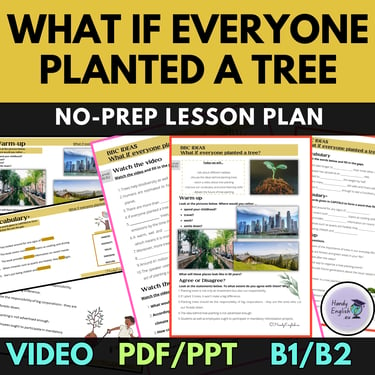[BLOG] Teaching Abroad: A Teacher’s Survival Guide #0.2: What to Think About Before Choosing a Teaching Job Abroad
Thinking about teaching abroad? This guide breaks down the key factors you need to consider before signing a contract — from how long to stay and what type of school to choose, to lifestyle, climate, food, finances, and community. Honest, practical advice for teachers planning their next international move.
Kaya
12/5/2024
Please keep in mind that the opinions posted on this blog are my own.
Everybody might have a different experience and opinions, and that's OK.
Ah, yes, the decision has been made. You’ve decided you want to teach abroad. Cue the daydreams of palm trees, adventure, and “finding yourself” while sipping bubble tea in some hip café. But before you start packing your suitcase (and Googling how many pairs of socks fit in a carry-on), it’s worth hitting pause. Choosing a teaching job abroad isn’t just about hopping on a plane and hoping for the best - it’s about asking the right questions before you sign the contract. The more honest you are with yourself about your needs, the smoother the whole experience will be. Because while adventure is exciting, regret is not.
Here’s what you need to think about before taking the leap.
How Long Are You Really Willing to Stay?
Contracts range from short-term summer gigs to multi-year commitments, and your tolerance for adventure might shift drastically once the honeymoon phase wears off. A six-month stint in Spain might sound manageable, while two years in rural China could feel overwhelming if you’ve never lived away from home before. Be brutally honest with yourself: are you looking for a quick adventure, a gap-year-style experience, or are you ready to actually settle in and build a life abroad?
A practical tip: set a “non-negotiable” time frame in your head before you even start applying. If you know you’d panic at signing anything over a year, don’t even entertain those jobs. You’ll thank yourself later when you’re not stuck counting down the days on a calendar.
The School Behind the Contract
Not all teaching jobs are created equal. There’s a huge difference between a polished international school with air-conditioned classrooms and a tiny cram school above a noisy noodle shop. Some schools provide solid training, textbooks, and supportive mentors, while others hand you a whiteboard marker and say “good luck.” Do your homework: look up reviews from former teachers, ask about teaching hours, prep time, and expectations outside of class.
Practical advice? Request to see a sample timetable before you sign anything - if they hesitate, that’s a red flag. And don’t be afraid to ask about “hidden” expectations like weekend events, unpaid training, or marketing duties. If the answers are vague or evasive, walk away. Remember: a shiny brochure doesn’t always equal a supportive work environment.
Lifestyle Matters: City or Countryside?
It’s not just about the school - it’s about where you’ll live. Teaching in Bangkok isn’t the same as teaching in a tiny Thai village three hours from the nearest supermarket. Cities offer convenience, expat communities, nightlife, and the comfort of finding peanut butter when you’re homesick. Rural placements give you immersion, quiet, and stunning landscapes, but loneliness can creep in if you’re the only English speaker in town. Ask yourself: are you the type who needs a buzzing social scene, or would you thrive in a slower, more immersive lifestyle?
A practical trick here is to search Facebook expat groups for the city or region you’re considering - it will give you a snapshot of what daily life really looks like for teachers there. And remember, neither option is “better” - it just depends on your personality and what you need to feel grounded.
Climate and Food: The Hidden Deal-Breakers
We often overlook this part when we’re swept away by the glamour of teaching abroad, but climate and food can make or break your experience. Living in tropical humidity can sound dreamy - until you realise you’ll be sweating through your lesson notes every day and battling giant cockroaches in your apartment. Cold climates come with their own challenges: heating bills, icy commutes, and the kind of darkness that makes getting out of bed a heroic act. And then there’s food. Sure, trying local cuisine is amazing, but can you handle spicy food three times a day? Do you have allergies that might make eating out difficult?
My practical advice: do a two-week “test run” at home. Try eating food from that culture every day, or set your thermostat to mimic the climate. It sounds silly, but it will give you a small glimpse of what everyday life could feel like. Sometimes it’s not the big cultural differences that wear you down - it’s the fact that you can’t find a decent sandwich or your winter boots never quite dry.
Money Isn’t Everything… But It’s Something
Yes, teaching abroad is often about the experience, but let’s not pretend finances don’t matter. Some countries (like the UAE, Japan, or South Korea) pay well and even throw in perks like housing and flights. Others might pay just enough to cover your rent and weekly dumpling habit. Before you accept a job, map out your financial priorities: are you teaching abroad to save money, pay off loans, or just to break even while exploring? If you want to save, look for contracts with housing provided or countries with a lower cost of living but decent salaries. If you’re okay breaking even, you’ll have more flexibility in choosing a location that excites you, even if the paycheck isn’t huge.
A practical step: make a spreadsheet with your expected salary, estimated expenses (rent, food, transport, travel), and what’s left over. It may not be glamorous, but seeing those numbers in black and white will keep you grounded in reality.
The People Factor: Who Will Be Your Community?
One thing teachers often underestimate is how important community is. You can love your students and adore the food, but if you don’t have people to lean on, the loneliness will sneak up on you fast. Does the school help connect teachers? Is there an expat community nearby? Or are you signing up to be the lone foreigner in a remote town?
Practical tip: ask the school how many foreign teachers are currently employed, and if they can connect you with a current staff member to ask about daily life. You can also check Meetup or Couchsurfing events in the area to see if social groups exist. Teaching abroad is so much easier (and more fun) when you’ve got a support network - even if it’s just someone to grab coffee with and complain about lesson planning.
Teaching abroad can be the adventure of a lifetime, but it’s not a decision to make on a whim. Contracts, lifestyle, climate, food, money, community - all of it matters. The good news? When you take the time to think these things through, you’re far more likely to end up with a job that excites you instead of drains you. Because teaching abroad shouldn’t just be about surviving - it should be about thriving. And the right fit is out there - but only if you know what you’re looking for.






Get in touch!
Copyright Handy English 2021
”I used this with an adult ELL tutee of mine. I appreciate that the language was accessible for multiple proficiency levels, but the content wasn't obviously geared for children and still useful for older learners.”
August 7, 2023
”Another great resource from Handy English! I used it to give my students more in-depth practise into quantifiers and restaurant language. It's great resource and can be used after the students learn the basics of language for the restaurants and quantifiers. Definitely helped solidify what they learnt.”
February 5, 2023
”Love this resource. Great for fast finishers and also those in small ESL groups. Great for all macro skills as discussion and brainstorming is a great precursor for writing submissions.”
- Gail M.
June 25, 2023
Here's what other ESL Teachers say
Handy English: 4.8/5
”This was a wonderful resource for my students. It helped me introduce them easily to new concepts and it was quite engaging. Thanks!”
- Kiara B.
October 10, 2023
”Great resource for learning vocabulary, which supports comprehension and speaking skills.”
- Lori-Ann W.
September 29, 2023
”What a great way to get a healthy debate going. My students struggle with impulse control and they all have kept it kind and appropriate.”
- Alicia H.
September 17, 2023






